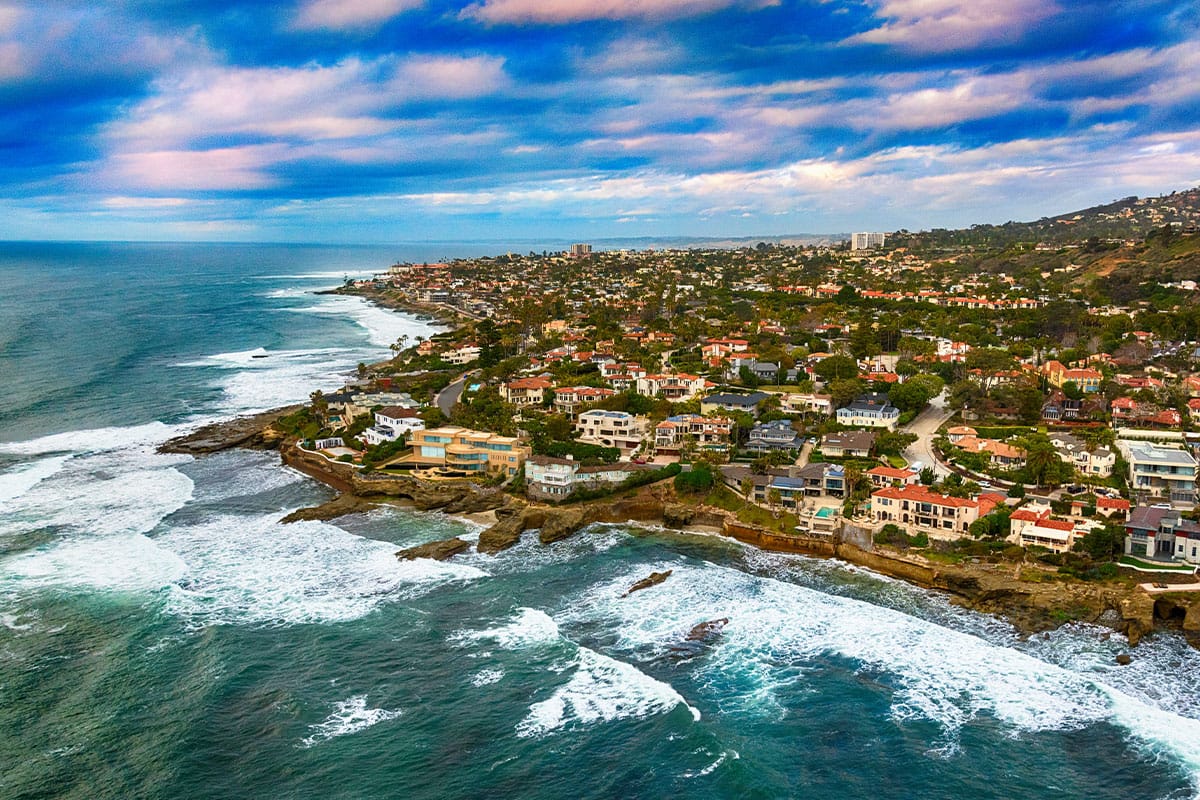As wildfires continue to affect communities throughout California, San Diego County is feeling the long-term effects on its housing market. Neighborhoods such as Poway, Ramona, and Alpine have faced elevated fire risks and ongoing rebuilding efforts, prompting shifts in buyer behavior, investor interest, and the types of properties coming to market.
At Artemis Law Group, we understand that natural disasters like wildfires have lasting legal and economic impacts. In this article, we examine how wildfire activity is reshaping the real estate landscape in San Diego and what buyers, sellers, and developers should keep in mind.
Buyer Demand is Shifting Toward Lower-Risk Areas
Increased awareness of fire zones and rising insurance premiums have pushed buyers to reconsider where they want to live. Nearby neighborhoods like Scripps Ranch, Rancho Bernardo, and Mission Hills are becoming more popular for offering access to outdoor spaces while avoiding the highest-risk regions. Local real estate agents are reporting stronger interest and faster-moving listings in these adjacent areas.
Buyers are also factoring in proximity to emergency services, fire station coverage, and local evacuation infrastructure when making decisions. This heightened sensitivity to location-specific risk is influencing not just individual home purchases, but also broader neighborhood-level trends in pricing and inventory.
Vacant Parcels Are Gaining Traction
In communities that have experienced recent wildfire threats, some homeowners are choosing not to rebuild. Instead, they’re selling vacant lots, giving rise to a growing number of land listings. Real estate platforms show an increase in these offerings in areas like Ramona and Alpine, where investors are scouting opportunities to build fire-resilient homes or long-term rental properties.
Many of these lots are attracting cash buyers who are comfortable navigating the permitting process and rebuilding under California’s updated fire safety codes. While these real estate transactions carry risks, they also present long-term upside for those with a strategic vision and access to construction resources.
Inventory and Buyer Demographics Are Changing
San Diego’s housing stock is evolving. High-end neighborhoods like Rancho Santa Fe and Del Mar are seeing more listings for raw land or fire-impacted properties, attracting developers and cash buyers. These changes are shifting the market balance, particularly for buyers seeking turnkey homes. Some areas now favor speculative development or custom homebuilding over traditional resale transactions.
These shifts are also affecting the demographics of buyers entering the market. There’s growing interest from out-of-area investors and institutional buyers who view fire-impacted regions as undervalued compared to neighboring cities. As a result, San Diego may experience an increase in short-term rentals, speculative builds, or multi-family development projects in historically residential zones.
Insurance Concerns and Rebuild Costs Are a Key Focus
Buyers today are conducting deeper due diligence, often reviewing wildfire maps and local building codes before making offers. Insurance premiums have increased significantly in fire-prone areas, and new policies can be difficult or expensive to obtain. In some cases, insurers have pulled out of California markets altogether, leaving buyers with limited coverage options under the state’s FAIR Plan, potentially leading to issues or disputes.
Rebuilds are also slowed by permit backlogs and labor shortages, with timelines now stretching from months to years. Material costs remain elevated due to lingering supply chain disruptions, adding further complexity for those attempting to restore or replace destroyed homes. These challenges mean that buyers must carefully evaluate project feasibility before moving forward.
Redevelopment and Zoning Changes Create New Possibilities
As San Diego County looks to recover and increase housing availability, local governments may consider easing zoning restrictions in certain wildfire-affected areas. While no uniform changes have been enacted countywide, historical examples across California suggest this may be on the horizon. Areas impacted by wildfires may see temporary or permanent updates to land-use rules to expedite rebuilding and encourage higher-density housing.
Some municipalities may also explore incentive programs, fee waivers, or expedited permit pathways to address urgent housing needs. Developers and landowners who stay informed of local policy shifts may gain an edge in securing project approvals or maximizing the use of fire-damaged parcels.
Why Legal Counsel Matters in Wildfire-impacted Markets
Navigating real estate in fire-prone areas involves more than market knowledge. At Artemis Law Group, we help clients manage legal risks and seize opportunities during this critical time:
- Insurance and title reviews to uncover unresolved claims, easement disputes, or lien issues
- Zoning and land use planning to understand redevelopment potential and code compliance
- Contracts that address wildfire-specific issues including risk disclosures, rebuild timelines, and insurance contingencies
- Litigation and dispute resolution if problems arise during transactions, construction, or insurance claims
We also assist clients in evaluating public records, parcel history, and environmental reports that may be essential to understanding a property’s full risk profile. In some cases, legal action may be necessary to resolve issues with delayed insurance payouts, contractor disputes, or title complications resulting from wildfire destruction.
The Path Forward for San Diego Real Estate
As San Diego’s real estate landscape continues to adapt to the growing reality of wildfires, buyers and investors must approach transactions with a blend of caution and creativity. Those who understand the long-term regulatory and environmental shifts will be better positioned to protect their investments and capitalize on new opportunities.
Whether you’re planning to rebuild, divest, or explore development, Artemis Law Group offers the legal insight and strategic guidance you need. Let us help you navigate the complexities of fire-affected markets with clarity, confidence, and care.


